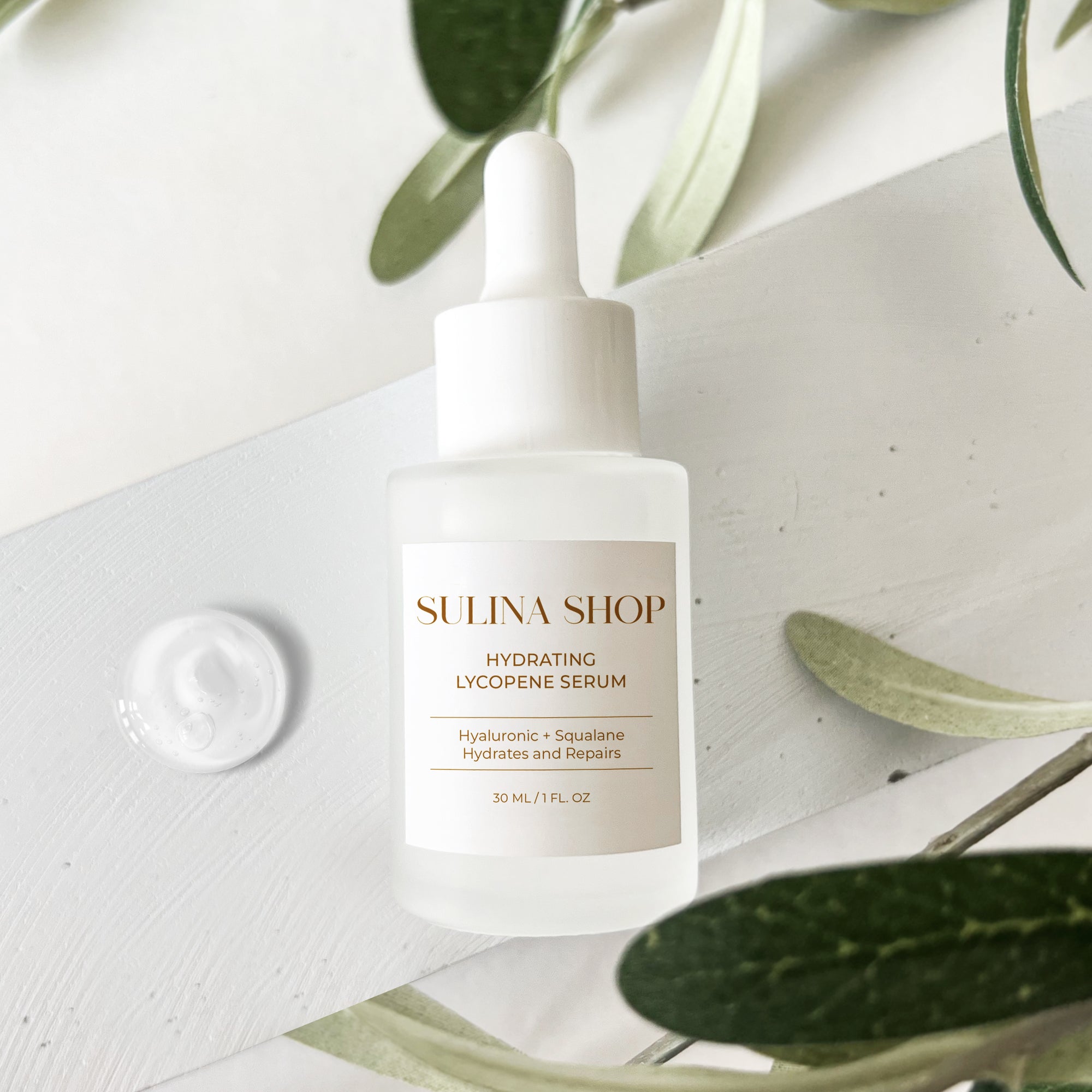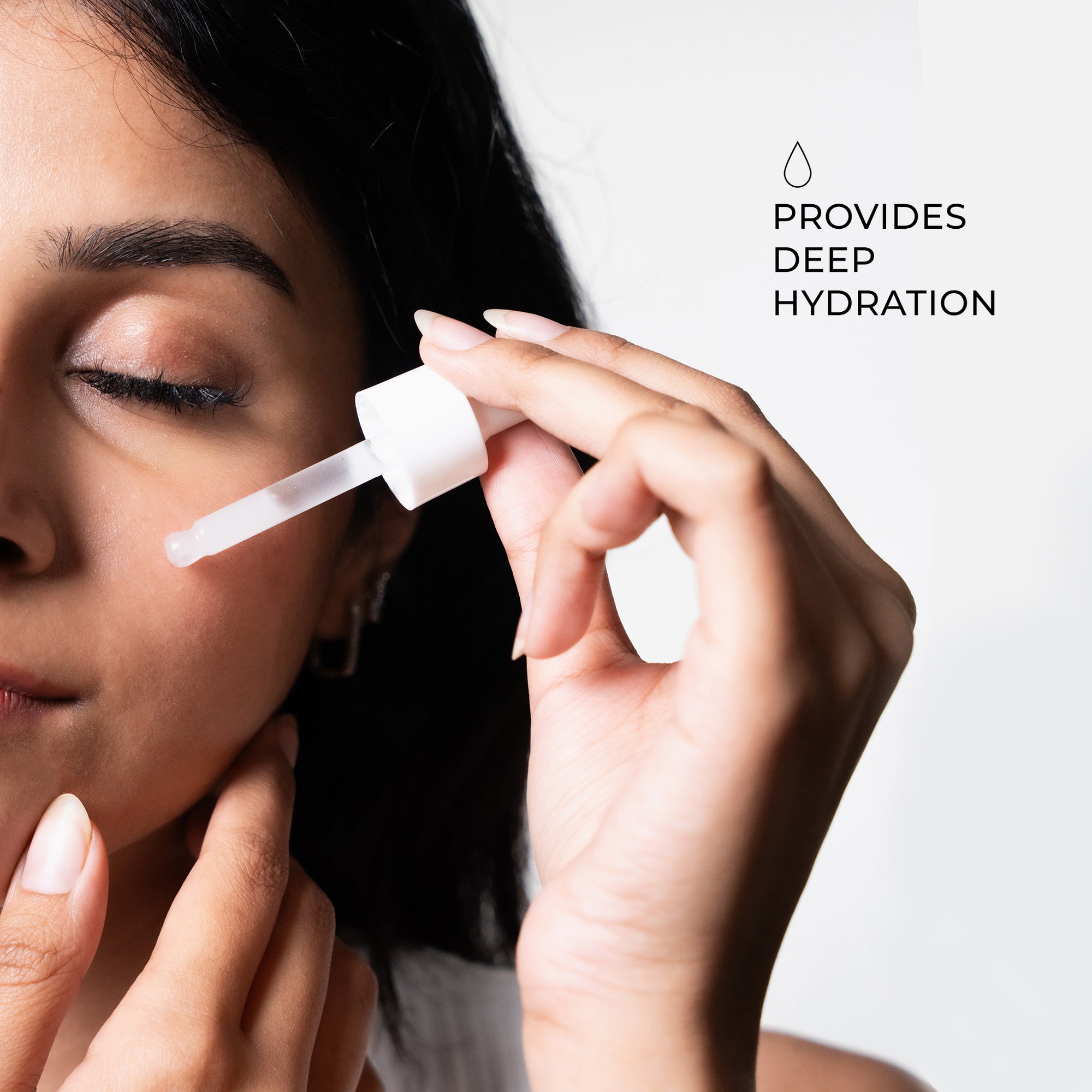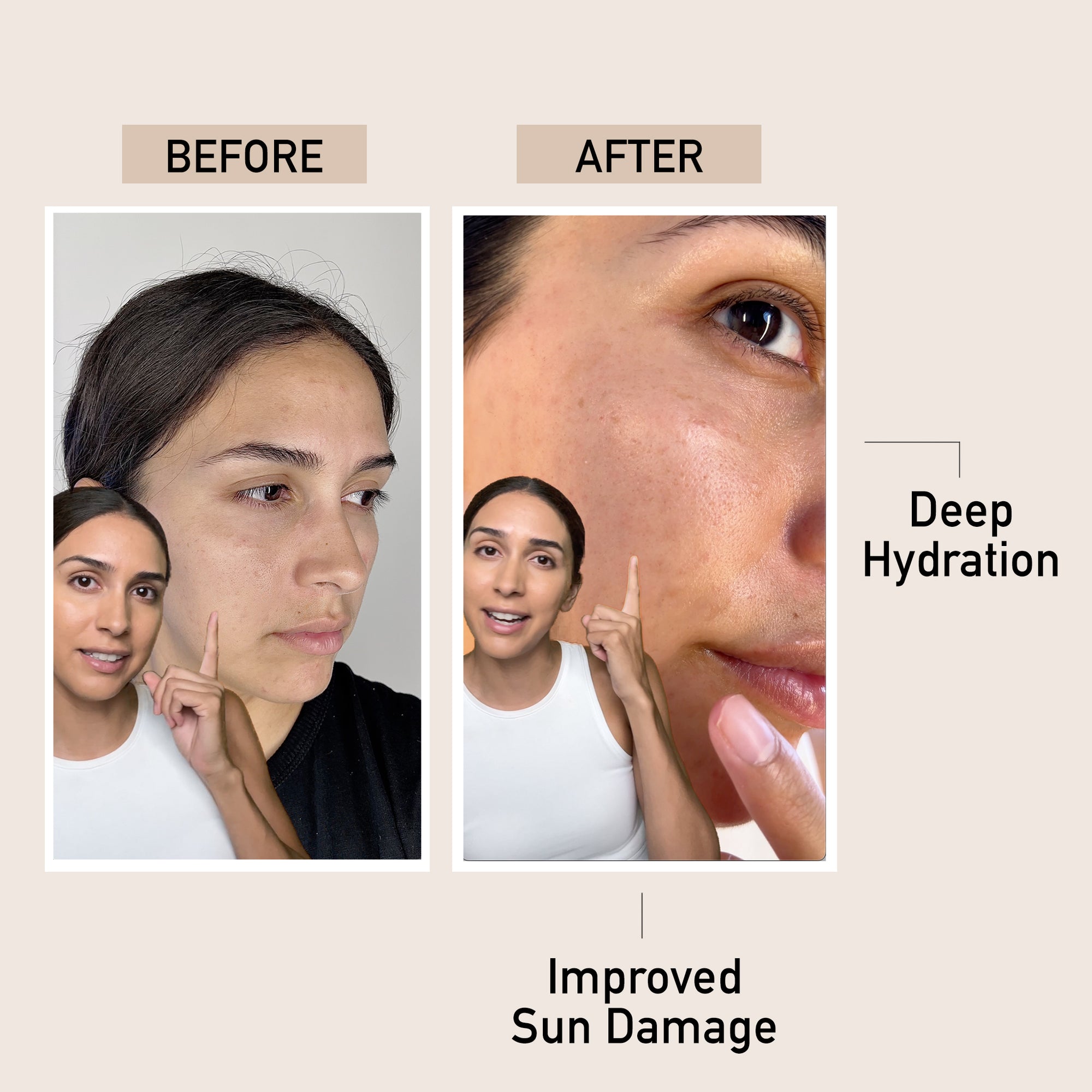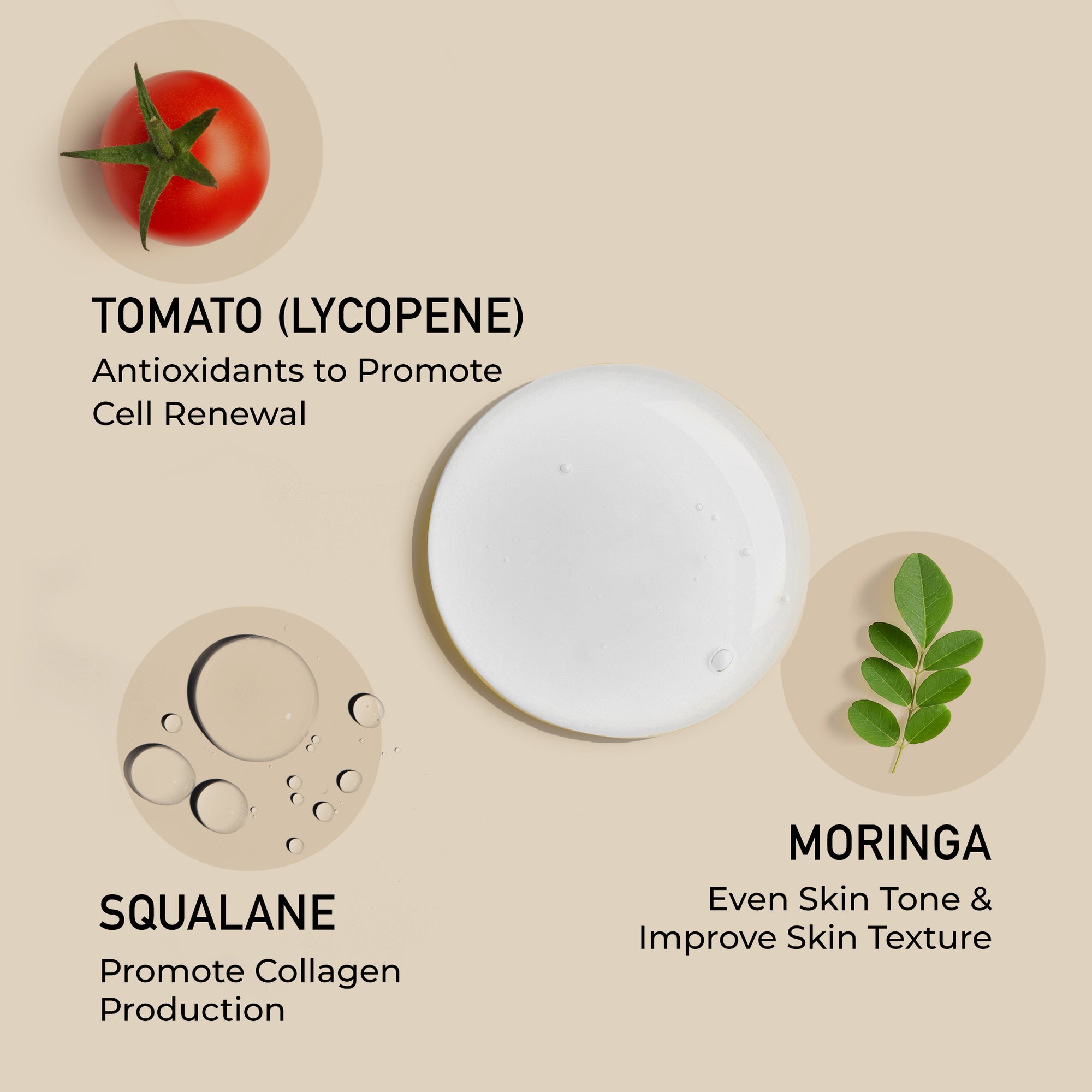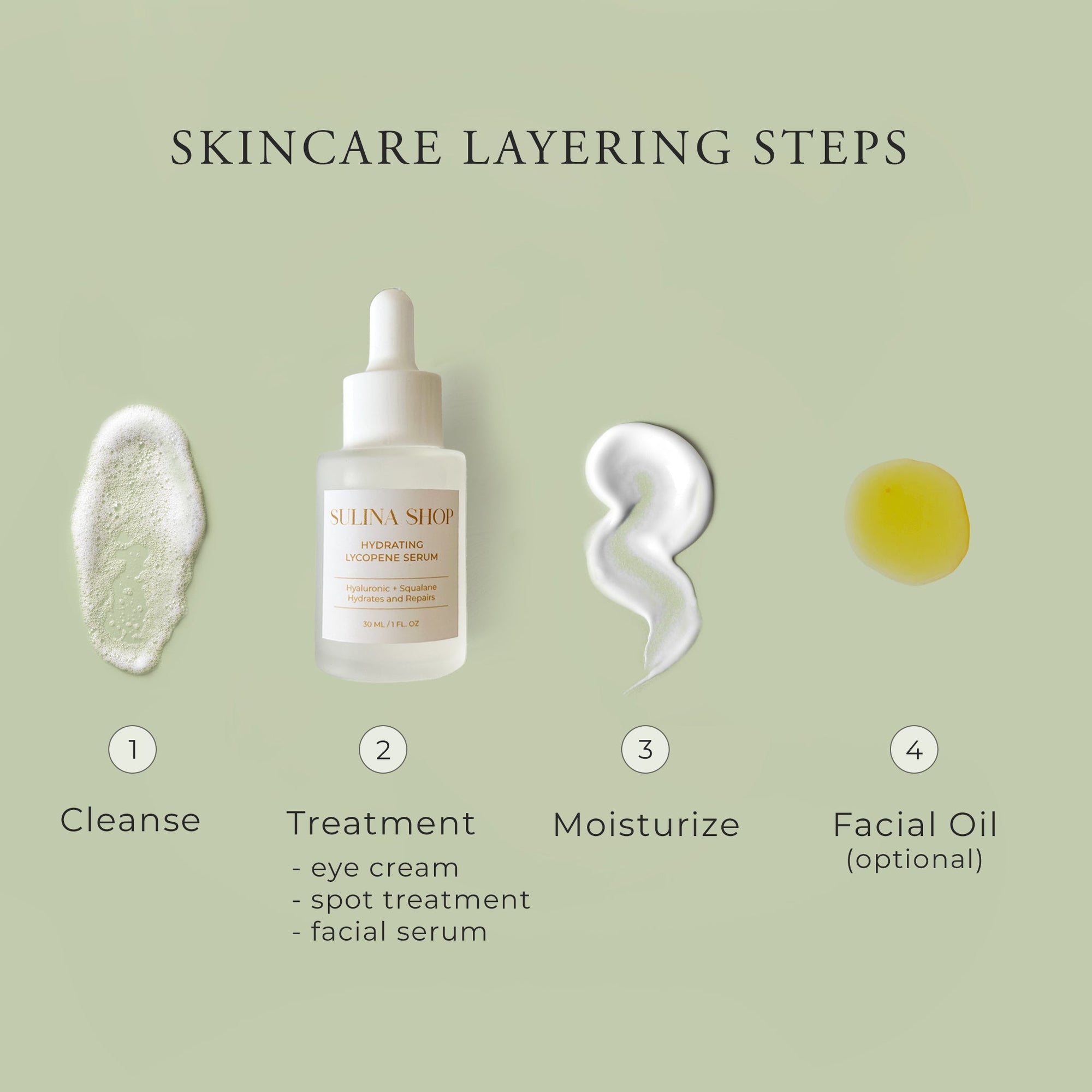
Benefits of Lycopene in Skincare
Lycopene belongs to a family known as carotenoids, natural pigments that give many fruits and vegetables their bright yellow, red, and orange hue. As a red carotenoid, lycopene is found in tomatoes, watermelon, papaya, and pink grapefruit; tomatoes are the best source. It is a fat-soluble and relatively smaller molecule in size.
Lycopene's main health benefit is its antioxidant function. Science-backed studies suggest that a high intake of lycopene-containing foods helps reduce the risk of chronic disease due to its antioxidant activity. Being a potent antioxidant, lycopene also benefits the skin in more ways than one.
Antioxidant Activity of Lycopene
Let's look into what exactly antioxidants are before jumping into the antioxidant activity of lycopene.
Back to basics: Antioxidants and free radicals are two unavoidable scientific terms used throughout the health and beauty industry. Free radicals are highly unstable molecules and byproducts of ongoing biochemical reactions in the body. They cause damage to healthy skin cells in their quest to become stable when the skin is constantly exposed to UV rays, environmental pollutants, or other chemical and mechanical insults. This damage can be visible in the skin as fine lines & wrinkles, a dull, uneven skin tone, more noticeable dark spots, & hyperpigmentation.
Antioxidants are the foil opposites of free radicals. These substances not only quench free radicals but also encourage the body's own protection mechanism against oxidative stress and inflammation, improving skin resilience and allowing the skin to better cope with environmental stressors.
Lycopene is such an efficient free radical scavenger that it plays a vital role in preventing oxidative damage and defying aging. When lycopene is concentrated in the skin, its free-radical scavenging activity improves the skin cell membrane's thickness, strength, and fluidity. Research also reveals that topical application of lycopene plays an essential role in stabilizing DNA structure in the nucleus of the skin cells and inducing the DNA double-strand break repair pathway. And it showed that lycopene might also protect the skin through its ability to reduce inflammation, promote cell renewal, and inhibit typical DNA damage following UVB overexposure.
Other Benefits of Lycopene in Skin Care
In addition to its excellent antioxidant activity, lycopene helps improve gap-junction communication. This cell-to-cell communication is important for metabolic processes related to growth and reproduction. Due to the fact that lycopene's ability to enhance connectivity between cells may result in improved skin texture for younger-looking skin.
Lycopene also helps strengthen the skin by inhibiting collagenase, the activity of enzymes involved in the collagen damage, which breaks down the peptide bonds in the collagen fibers of the skin, leading to loss of integrity and the appearance of sags and wrinkles. Lycopene down-regulates the activity of collagenase and helps enhance the skin's firmness.
Besides, it was found that micronutrients such as lycopene showed other benefits, including better skin moisturization, skin elasticity, and superficial skin structure.
Reference:
- Antioxidative properties of lycopene and other active components (2004)
- A simple and rapid method to assess lycopene in multiple layers of skin samples. Biomed Chromatogr (2010)
- Protective Effects of Lycopene Against Ultraviolet B-Induced Photodamage (2009)
- Lycopene oxidation product enhances gap junctional communication (2003)
- Lycopene inhibits matrix metalloproteinase-9 expression and down-regulates the binding activity of nuclear factor-kappa B and stimulatory protein-1 (2006)
Boost Your Skin with Lycopene – Try Our Antioxidant-Rich Serum




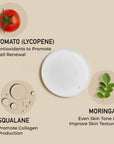



WHAT IT DOES: Hydrates Skin, Repairs Sun Damage (Antioxidants), Evens Skin Tone
SKIN TYPE: All Skin Types
WHEN: Morning and Night
HOW: Use 2-3 Drops after Cleansing and Toning
Lycopene is rich in antioxidants that help repair collagen damage and reduce the appearance of fine lines and wrinkles. Also formulated with Hyaluronic Acid to improve hydration and Moringa Oil to seal in moisture, repair, and improve skin's texture.
Hydrating Lycopene Serum is water-soluble, too, which means it absorbs into skin quickly to repair, hydrate, and improve overall texture.
This content type will accept rich text to help with adding styles and links to additional pages or content. Use this to add supplementary information to help your buyers.
You can use product metafields to assign content to this tab that is unique to an individual product. Use tabs to highlight unique features, sizing information, or other sales information.
